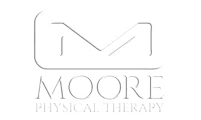If you are pregnant and experiencing pain or stiffness in your muscles, dry needling can be an effective treatment option. This technique is safe and effective for both pregnancy-related issues as well as chronic ailments.
Dry needling is a non-invasive therapeutic technique that utilizes thin solid needles to release tightness and increase blood flow while relieving localized and referred pain. When done correctly, dry needling can decrease tightness, increase circulation, and provide temporary comfort for the user.
Safe
Dry needling is a safe technique to use during pregnancy. There is no risk of an abortifacient reaction and there are no known dangers to the baby when acupuncture is used during the first trimester.
Dry Needling is a pain-relieving technique taught and practiced by physiotherapists in New Zealand since 1982. It involves using a sterile needle to deactivate trigger points in muscles.
Muscle relaxant therapy is an effective solution for many muscle conditions, and pregnancy-related issues like low back and pelvic pain.
Dry needling can be extremely beneficial for sacroiliac joint dysfunction and should be used as part of physical therapy to help you do exercises with less pain and recover faster. However, it’s best to consult your healthcare provider prior to trying dry needling while pregnant as some blood thinners may increase the risk of bruising.
Relaxing
Physiotherapy is safe to use during early pregnancy, helping to relieve aches and pains while increasing mobility. However, it’s best to consult your gynecologist prior to attending any sessions as some treatments may need adjustments.
During your session, your therapist will insert dry needles over areas where you are experiencing discomfort. These stimulate your mechanoreceptors, helping to release tension and pain.
Your body’s response to needles increases blood flow to the site of injury, bringing in healing mediators that expedite natural healing. It also stimulates muscle growth for increased strength and function.
This approach has been successfully used for a variety of musculoskeletal conditions, such as Achilles tendinitis, headaches, knee pain, neck pain, plantar fasciitis, shoulder impingement and rotator cuff dysfunction, sciatica and tennis/golfer’s elbow. Therefore it can serve as an invaluable addition to the treatment options available to women suffering from pregnancy-related discomforts.
Effective
Dry needling is an effective treatment for many pain-related conditions, particularly during pregnancy when women experience physiological and anatomical changes that may cause muscular discomfort during the first few weeks or months after giving birth. Once pregnant, dry needling can help restore women to their pre-pregnancy states by helping to address those changes before they revert back to their pre-pregnancy states within weeks or months after giving birth.
At a dry needling session, your provider will palpate (feel) the area to identify trigger points that cause pain and then insert needles around these areas. Your provider may insert the needle superficially (5 to 10 millimeters deep into muscle tissue), or deeper if necessary.
Dry needling is a safe and effective treatment for pregnant women, but should be avoided over the abdomen, upper lumbar spine and sacrum due to potential risks of injury and complications like bruising, bleeding, infection or other problems. Furthermore, those taking blood thinners should avoid this practice due to increased risks of bruising.
Comfortable
Dry needling is a rehabilitation treatment that involves inserting needles into painful muscle knots (trigger points). These needles cause a small, precise injury within the tissue, activating your body’s natural ability to heal itself.
Your therapist will use one hand to palpate the area to locate the trigger point and insert a needle with their other. Utilizing a plastic guide tube, they are able to accurately tap in the needle into place.
This technique is highly effective for relieving pelvic pain during pregnancy and may also relieve lower back pain and ameliorate sciatic nerve symptoms.
Alternative treatments like electroacupuncture offer a comfortable alternative to acupuncture for many conditions, such as fibromyalgia, chronic pain and tension headaches. Unlike acupuncture, there’s no need for the patient to move during treatment – making it an attractive option for many.
If you’re interested in learning more about dry needling and how it can benefit you during pregnancy, contact us to schedule an appointment with our team of specialists at Moore Physical Therapy.



